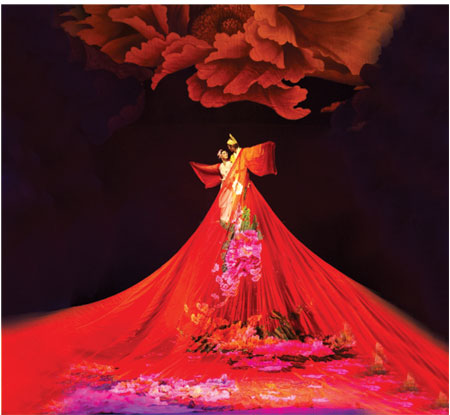Written by Tang Xianzu (1550-1616), The Peony Pavilion, a 16th-century Chinese drama about love, death, and resurrection, is arguably the most popular play from the Ming Dynasty (1368-1644).

A number of artists from all kind of genres have been inspired to tell the stories in their own unique way, of which the Kunqu version is perhaps the most famous.
In April, the National Ballet of China adapted it into a ballet and now the Jiangsu Qianxian Song and Dance Company will present a dance version of it at the National Center for the Performing Arts on September 18-20.
The original script has 55 scenes and some Kunqu versions have staged the full-length play over three nights. Directed by Lu Ling, the three-act dance focuses on the love between Du Liniang and Liu Mengmei, extends over three lifetimes.
Du, the daughter of a high-ranked official, meets the young scholar Liu in a dream. The two have a tryst in a garden of peonies. Du awakens and pines for her phantasmal lover, then dies, leaving behind a self-portrait.
Liu, happens to be a real person and through sheer accident ends up staying in Du's town. He discovers her painting, and falls in love with her.
Then the Underworld judge, moved by Du's beauty and her undying love, returns her to the mortal world. She appears to Liu as a ghost, and they again consummate their love. Liu digs her up, whereby her soul rejoins her body.
They elope, and, after a number of trials - the bulk of which involves trying to convince her father that she is not a demon, and that her lover is not a grave robber - the emperor pardons all.
Fang Ming, music director of the opening ceremony of the Paralympics, composed the music for the dance. The award-winning dancer Hu Qinxin takes on the part of Du while Xu Peng is Liu.
After Beijing, the company will tour Shanghai to perform at the Shanghai International Arts Festival in October.
7:30 pm, Sept 18 to 20
National Center for the Performing Arts, West of Tian'anmen Square 66550000
国家大剧院 天安门广场西